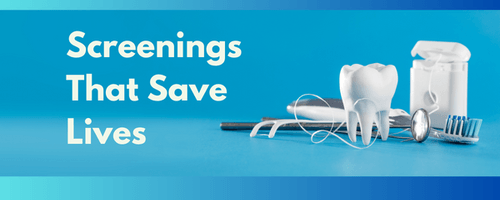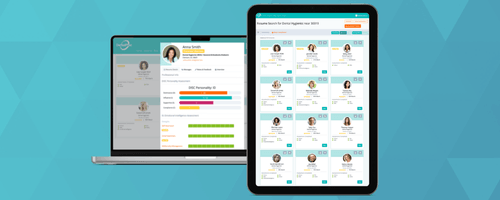
4 Tips to Discuss Salary During a Dental Job Interview

Posted February 19, 2022
It’s natural to feel awkward asking or answering salary-related questions during a dental job interview. However, discussing your salary expectations comfortably with a dental hiring manager or practice owner is vital to ensuring alignment.
This how-to guide will steer you smoothly through those often sticky interview moments when the topic of money arises. Learn how to turn salary discussions into a positive experience instead of losing your composure and affecting your chances of being hired.
Salary vs. Compensation: What’s the Difference?
A common mistake dental job seekers make is settling on a job offer based solely on the proposed salary. A salary-only position may not include the benefits that other jobs may provide. Knowing the difference between salary and compensation benefits is essential for narrowing your job search to compare and consider your options.
While we often use the terms “salary” and “compensation” interchangeably to refer to our take-home pay, some differences exist. Your salary or “direct compensation” is your weekly or monthly paycheck received in exchange for paid work. It also includes overtime pay, commission, and any bonuses earned or money your employer pays you from incentive plans.
We call the additional perks included in the job you’re applying for “indirect compensation.” These benefits may not arrive as cash in your bank account but will still offer significant non-monetary value, such as health, life, and legal insurance coverage.
Indirect compensation examples
Dental benefits for yourself and your family and even attending conferences paid by the employer are all indirect compensation perks. Paid vacations, medical coverage, and retirement contributions are also examples of benefits that a dental job may include.
Some job offers might not match your ideal salary expectations. Dental employers unable to pay the higher end of a salary range may provide indirect compensation instead.
Understanding these additional benefits can help you weigh the pros and cons of competing job offers. If an employment offer contains certain benefits that match your needs, compromising a little on salary could be worthwhile in the long run.
4 Tips to Discuss Salary Expectations In a Dental Interview
Before attending an interview and discussing salary expectations and indirect compensation, it’s best to have a sound game plan. How will you respond when the question of expected salary is brought up? What will you do if it isn’t?
Here are a few pointers on how to prepare for that conversation.
1. Understand What You Have to Offer
Knowing the market average of the dental position for which you’re applying and understanding the value of the skills, abilities, and work experience you offer a dental practice or organization will help you feel far more confident putting your salary expectations out there.
Do you know what other dental professionals in your role are earning?
How do you avoid accepting a salary offer below the industry average for your town, city, or state? Independent data from a trusted source will help you know the salary range you can expect.
Unsure where to find this information? Our 2022 Dental Salary Survey Report shares insights from 13,000 dental professionals nationwide on role-specific salary ranges. You will also learn about some of the top benefits different dental positions offer.
Use our data about the typical salaries and benefits other dental professionals enjoy to compare your job opportunities.
Are you confident in the skills you bring to the table?
Many factors influence the range of professional and personal skills we offer. Our training, workplace experiences, and the various opportunities offered in previous jobs all add up. Do you know where you shine? If you do, motivating the salary you want and expect will be much easier.
To assist, DentalPost offers dental job seekers free personality, skills, and career assessments to help you better define your job search goals and focus your search on finding the right job.
Hiring managers and practice owners can also review your top skills and values at a glance and get a better idea of your proficiencies, personal values, vision, and goals to know if you are a right fit for their practice or organization.
2. Find out more about the Dental job And Workplace details
Doing your homework is the best way to avoid landing an interview for a dental job you don’t want. Knowing a role’s requirements, benefits, and average industry earnings will also equip you with the resources to confidently ask for what you feel you deserve.
Find out as much as possible about the position and workplace. What does a typical day at the practice look like, and what duties and responsibilities does the role require?
You’ll quickly know if you qualify for the job and can also identify which skills you need to emphasize during the interview.
You can use our Job Comparison Chart to list and vet job ads based on what the offer says about the office culture, benefits, role expectations, and more.
3. Consider additional expenses
A new job can come with extra expenses you need to factor in when looking at salaries. As tempting as it may be to opt for quick income and accept the first offer, consider things like travel expenses or the possible need to relocate. These factors can drain your take-home pay and can be easy to overlook when looking only at bottom-line figures.
4. Be open to negotiations
Instead of going into the interview with a set amount that leaves no room for discussion, give a range for your salary expectations. This shows that you’re flexible enough to negotiate with them and reach an agreement.
In most cases, the interviewer has a salary range they’re willing to offer. They’ll listen for figures matching their budget when they ask about your salary expectations. Keep discussions open by letting them know you are open to negotiating salary and benefits until you reach a comfortable agreement.
Part of the proposal may be a lower salary for a set probation period, with an increase once you have passed the trial period with flying colors. Don’t let offers like this put you off; see them as opportunities to trial your new workplace to see if they’re a good fit for you too.
Sign up for A DentalPost Job Seeker Account Today
Create a free Dental Job Seeker account to build your resume profile, search for jobs, and get one step closer to getting hired.
We connect and educate more than 900,000 job seekers in the U.S. and Canada to build better places to work through teams that excel.
Featured Posts
Featured Posts
Loading...



.png)





